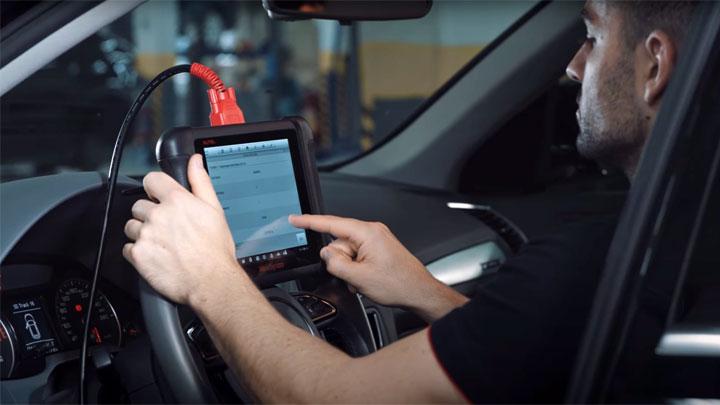Automotive Diagnostic Scan Tools Market
The automotive industry has witnessed significant advancements in technology over the years, leading to the increased complexity of vehicle systems. With these advancements, the need for effective diagnostic tools has become crucial. Automotive diagnostic scan tools play a vital role in identifying and troubleshooting issues in modern vehicles. In this article, we will explore the automotive diagnostic scan tools market, their importance, types, key features, benefits, market trends, major players, challenges, and future opportunities.
Introduction
The automotive diagnostic scan tools market has experienced substantial growth in recent years due to the increasing demand for efficient vehicle diagnostics and maintenance. These tools provide technicians and vehicle owners with valuable insights into the health and performance of their vehicles. By connecting to the vehicle's onboard computer system, these tools can retrieve and interpret diagnostic trouble codes (DTCs), monitor sensor data, and perform various tests to pinpoint potential issues.
Definition of Automotive Diagnostic Scan Tools
Automotive diagnostic scan tools are electronic devices used to communicate with a vehicle's onboard computer system for diagnostic and maintenance purposes. They are designed to access and interpret data from various sensors, control modules, and subsystems of a vehicle. These tools can provide real-time data, identify malfunctions, and assist in troubleshooting and repairing faults efficiently.
Importance of Automotive Diagnostic Scan Tools
In the modern automotive industry, vehicles are equipped with advanced electronic systems that monitor and control various aspects of their operations. Traditional mechanical troubleshooting methods are no longer sufficient to diagnose and repair complex issues. Automotive diagnostic scan tools enable technicians and vehicle owners to accurately diagnose problems by retrieving valuable information from the vehicle's computer system. This helps save time, money, and effort in identifying and resolving issues.
Types of Automotive Diagnostic Scan Tools
There are different types of automotive diagnostic scan tools available in the market, catering to various user requirements and budgets. Let's explore the main types:
Code Readers
Code readers are the basic entry-level diagnostic tools that can retrieve and display diagnostic trouble codes (DTCs) from a vehicle's computer system. They provide a basic understanding of the issues present in the vehicle but may lack advanced functionalities like data interpretation and live data streaming.
OBD-II Scanners
OBD-II (On-Board Diagnostics II) scanners are widely used diagnostic tools that are compatible with most vehicles manufactured after 1996. These scanners can retrieve and interpret DTCs, monitor sensor data in real-time, and provide additional functionalities like freeze frame data, readiness status, and emission testing.
Professional Diagnostic Tools
Professional diagnostic tools are advanced devices used by professional technicians and automotive workshops. These tools offer comprehensive diagnostics, advanced data interpretation, component testing, and programming capabilities. They are more expensive but provide in-depth insights into a vehicle's systems and perform complex tasks.
Advanced Diagnostic Tools
Advanced diagnostic tools are specialized devices designed for specific vehicle makes and models. They offer manufacturer-specific diagnostics, programming, and calibration features. These tools are commonly used by dealerships and specialized repair centers.
Key Features of Automotive Diagnostic Scan Tools
Automotive diagnostic tools come with various features that enhance their usability and effectiveness. Here are some key features to consider:
Compatibility
When choosing a diagnostic scan tool, it's important to ensure compatibility with your vehicle make, model, and year. Different vehicles use various communication protocols, such as OBD-II, CAN, and J1939. The tool should support the required protocol for seamless communication.
Data Display and Interpretation
A good diagnostic scan tool should provide clear and easy-to-understand data displays. Real-time sensor data, freeze frame data, and graphical representations can help users analyze the vehicle's performance and identify anomalies.
Connectivity
Most modern diagnostic scan tools offer wireless connectivity options like Bluetooth or Wi-Fi. This allows users to connect to their smartphones, tablets, or laptops for enhanced mobility and convenience. Some tools also support USB or Ethernet connections for direct communication with a computer.
User Interface
A user-friendly interface is essential for efficient diagnostics. Intuitive navigation, clear menus, and quick access to commonly used functions contribute to a smoother diagnostic process.
Additional Functions
Some diagnostic scan tools offer additional functions like resetting warning lights, service interval resets, programming modules, and conducting specialized tests. These features add value and versatility to the tool's capabilities.
Benefits of Using Automotive Diagnostic Scan Tools
Using automotive diagnostic scan tools provides several benefits to both professional technicians and vehicle owners. Let's explore some of these advantages:
Time and Cost Savings
Diagnostic scan tools help save time by quickly identifying the root cause of a problem. This eliminates the need for manual inspections and guesswork, reducing diagnostic time. Efficient diagnostics lead to quicker repairs, resulting in cost savings for both technicians and vehicle owners.
Accurate Troubleshooting
Diagnostic scan tools provide precise diagnostic information, allowing technicians to pinpoint the exact location and nature of a problem. This accuracy enables targeted repairs, reducing the chances of misdiagnosis and unnecessary part replacements.
Enhanced Vehicle Performance
Regular use of diagnostic scan tools can help optimize a vehicle's performance. By monitoring sensor data, identifying minor issues, and conducting preventive maintenance, technicians and vehicle owners can ensure that the vehicle operates at its best.
Preventive Maintenance
Diagnostic scan tools can detect potential issues before they escalate into major problems. By identifying early warning signs, technicians can proactively address maintenance requirements, preventing costly breakdowns and ensuring optimal vehicle performance.
Related Report:
